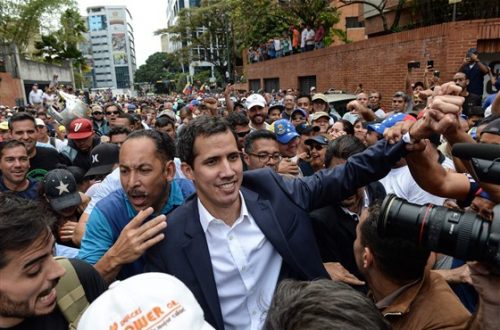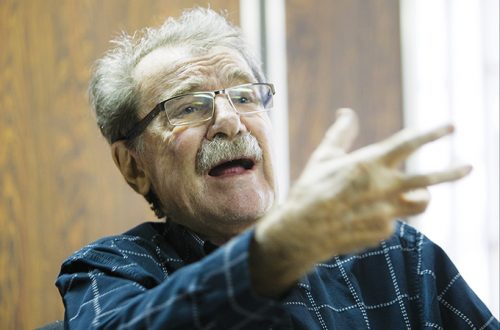At Caracas Chronicles, Francisco Toro dares to wish that Venezuela’s next president will be more like Uruguay’s José “Pepe” Mujica and less like the gravely ill and soon-to-depart Hugo Chavez.
Mujica, a former Tupamaro guerilla leader who spent 14 years in prison, was elected president in 2009. The New York Times describes his current political stance as a “brand of low-key radicalism.”
Under Mr. Mujica, who took office in 2010, Uruguay has drawn attention for seeking to legalize marijuana and same-sex marriage, while also enacting one of the region’s most sweeping abortion rights laws and sharply boosting the use of renewable energy sources like wind and biomass.
But what’s remarkable about Mujica is his personal modesty.
He lives in a run-down house on Montevideo’s outskirts with no servants at all. His security detail: two plainclothes officers parked on a dirt road.
José Mujica shunned the presidential palace for his modest home on Montevideo’s outskirts.
In a deliberate statement to this cattle-exporting nation of 3.3 million people, Mr. Mujica, 77, shunned the opulent Suárez y Reyes presidential mansion, with its staff of 42, remaining instead in the home where he and his wife have lived for years, on a plot of land where they grow chrysanthemums for sale in local markets.
Visitors reach Mr. Mujica’s austere dwelling after driving down O’Higgins Road, past groves of lemon trees. His net worth upon taking office in 2010 amounted to about $1,800 — the value of the 1987 Volkswagen Beetle parked in his garage. He never wears a tie and donates about 90 percent of his salary, largely to a program for expanding housing for the poor.
…..
[I]f there is any country in South America where a president can drive a Beetle and get by without a large entourage of bodyguards, it might be Uruguay, which consistently ranks among the region’s least corrupt and least unequal nations. While crime is emerging as more of a concern, Uruguay remains a contender for the region’s safest country.
This isn’t to suggest that all national leaders should emulate Mujica. In most countries, that would be impossible. But in many ways Mujica is the opposite of the egotistical caudillo Chavez.
“We have done everything possible to make the presidency less venerated,” Mr. Mujica said in an interview one recent morning, after preparing a serving in his kitchen of mate, the herbal drink offered in a hollowed calabash gourd and commonly shared in dozens of sips through the same metal straw.
…..
Polls show that his approval ratings have been declining, but “I don’t give a damn,” insisted Mr. Mujica, emphasizing that he considered re-election to consecutive terms, already prohibited by Uruguay’s Constitution, as “monarchic.” “If I worried about pollsters, I wouldn’t be president,” he said.
The contrast with Chavez– who has immodestly declared “Chávez es el pueblo venezolano,” whose most ardent supporters portray him with a creepy reverence, and who won a change in the Venezuelan constitution so he could seek reelection endlessly– could not be plainer.

